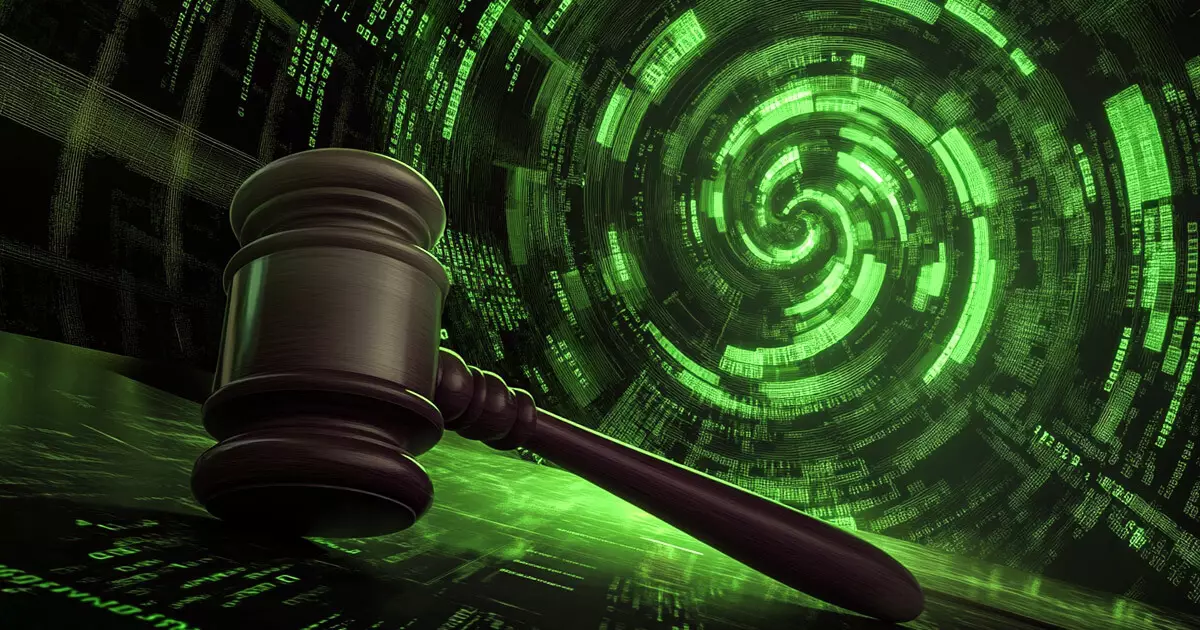The recent ruling by Judge Katherine Polk Failla in the Southern District of New York marks a pivotal moment in the intersection of cryptocurrency and legal frameworks in the United States. The decision asserts that software code pertinent to crypto protocols, including high-profile cases like Tornado Cash, does not fall under the protective umbrella of the First Amendment, raising significant concerns for developers and the broader crypto industry. This article aims to dissect the implications of this ruling, the nuances of its legal arguments, and its potential consequences for software developers at large.
In delivering her judgment, Judge Failla navigated the intricate landscape of legal definitions that traditionally shield creative expression. The ruling posits that while code can indeed be expressive, its application in facilitating monetary transactions places it outside First Amendment protections. This distinction is critical— it indicates that simply writing code does not render developers immune from financial regulatory frameworks, particularly under the Bank Secrecy Act (BSA). The court’s interpretation could reshape the manner in which crypto protocols are evaluated by regulators and the judiciary.
Furthermore, by classifying crypto protocols such as Tornado Cash as money transmitters, the decision sets a precedent that can dramatically shift the accountability landscape. The ruling suggests that the mere facilitation of funds transfer, regardless of whether developers exercise control over those funds, could lead to regulatory ramifications. This is a notable shift from previous legal interpretations that often hinged upon the notion of control as a prerequisite for classifying an entity as a money transmitter.
Roman Storm, the developer facing charges related to Tornado Cash, is at the heart of this groundbreaking ruling. His legal arguments revolved around the notion that his work in creating and deploying Tornado Cash should be safeguarded under the constitutionally guaranteed freedom of speech. However, with the court’s rejection of this defense, Storm’s trial—which is slated to commence on December 2—takes on even greater significance. The case may serve as a touchstone in defining the legality and accountability of code distribution in the evolving crypto landscape.
The charges against Storm are serious. He faces accusations of money laundering, running an unlicensed money-transmitting business, and evading U.S. sanctions. The implications of these charges stretch beyond the individual, potentially criminalizing a broad swath of developer activities that involve blockchain technologies. If Storm’s appeal fails, it may embolden prosecutors to pursue cases against other developers engaged in similar ventures.
Reactions from industry stakeholders and legal experts have been overwhelmingly critical of the ruling, highlighting a pervasive fear of increased liability for software developers in general. Amanda Tuminelli, chief legal officer at DeFi Education Fund, articulated concerns over the potential chilling effect on innovation if developers feel compelled to self-censor their work due to fears of legal repercussions. Jake Chervinsky, head of legal for Variant, echoed these sentiments, labeling the ruling an “assault” on the fundamental freedoms of developers and warning it could set a dangerous precedent for software law.
The outcome of this case has implications that extend beyond the confines of Tornado Cash. It sends a clear message to software developers working in the crypto space: the legal landscape they operate within is becoming more perilous. As regulators work to keep pace with the rapidly evolving technologies encapsulated within blockchain and cryptocurrency, developers may find themselves unprepared for the ramifications of the rulings that could categorize their innovative pursuits as illicit or legally ambiguous.
As the case progresses through the judicial process, it is evident that the ruling will not only shape the trajectory of the Tornado Cash saga but will also impact how software developers across industries understand their legal liabilities. The decisions made in this high-profile case will likely set precedents that could either invigorate or inhibit the development of decentralized technologies.
The legal contours surrounding crypto and blockchain remain hotly contested. This case serves as a fulcrum, posing fundamental questions about the intersection of innovation and law. Ultimately, as the world navigates the complexities of financial technology, regulatory clarity will be pivotal in determining the sustainable growth of the crypto economy—an outcome that balances the rights of developers with necessary legal protections against illicit financial activities.


Leave a Reply